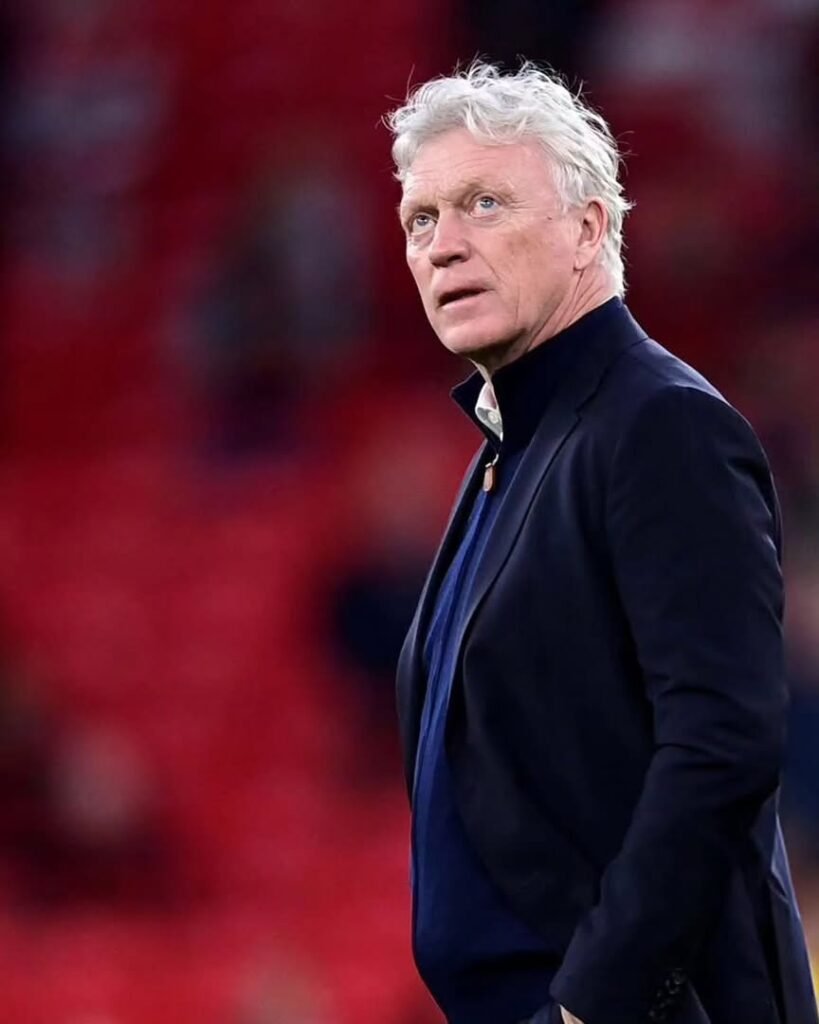David Moyes remains one of the most discussed and influential managers in British football. His journey, which recently saw a dramatic return to Everton, has captivated fans and pundits alike. In a year marked by challenges and major transitions within the Premier League, Moyes has once again found himself at the centre of the nation’s footballing debates.
Moyes Comes Home to Everton
After parting ways with West Ham United, Moyes made national headlines by returning to Everton in January 2025. Moyes, now 61, was asked to rescue a club in difficulty. Everton were hovering just above the relegation zone when the Friedkin Group, the club’s new American owners, appointed him for a second spell at Goodison Park.
His decision to return was not taken lightly. Moyes commented that he did not want to be the manager who would take Everton down, and felt a sense of “trepidation” about the possibility of relegation. Despite these anxieties, he sensed unfinished business in Merseyside and accepted a reported two-and-a-half-year contract.
Impact on the Pitch
The effect of Moyes’ appointment was immediate. Everton, who had been struggling to score, suddenly looked energised. They won four of their first five matches under Moyes, including a high-scoring win over Tottenham Hotspur and a significant draw against Liverpool in the Merseyside derby. These results lifted Everton several points clear of the drop zone, sparking fresh optimism for fans.
Moyes has repeatedly emphasised the importance of instilling confidence and belief within his players. He made it clear that, for survival, the results must come quickly. Moyes praised the squad’s attitude and resilience following their excellent performances in crucial fixtures, stressing that confidence breeds results and is essential for sustaining good form.
A Tactical Evolution
Moyes has always been known for discipline, hard work, and defensive solidity, but his approach at Everton has evolved. Recent tactical analysis reveals that Moyes prefers a direct brand of football with rapid transitions and a focus on utilising the strengths of key players, such as Beto upfront. By deploying long passes to strong forwards, Moyes enables the team to bypass the midfield and apply pressure swiftly to opposing defences.
His flexibility and willingness to adapt tactics based on the opposition and available players distinguishes his recent spell from earlier ones. Under Moyes, Everton have shifted formations in response to game situations, often lining up in a modern 4-2-3-1 but morphing into several different shapes during play. This ability to adjust has kept opponents guessing and maximised Everton’s strengths.
From West Ham to Everton: Legacy and Reflection
Moyes’ second tenure at West Ham United was statistically exceptional. After initially joining a struggling side in 2019, he led the club to its highest ever Premier League points tally, European qualification, and, most impressively, victory in the UEFA Europa Conference League – West Ham’s first major trophy in over four decades. He concluded his West Ham career with 262 matches managed and earned huge respect for stabilising and then elevating the club.
Despite this success, West Ham chose not to renew Moyes’ contract after the 2023-24 season. The mood among supporters was divided, with some eager for fresh ideas following a tough run late in the campaign, and others grateful for Moyes’ achievements. The club’s decline after Moyes’ departure only intensified debate about his overall impact.
Honours and Recognition
In June 2025, Moyes was awarded the OBE for his services to football. The Prince of Wales presented this honour at Windsor Castle, highlighting the manager’s longevity and influence in the English game. Moyes is now one of only three managers, along with Sir Alex Ferguson and Arsène Wenger, to have managed over 700 Premier League matches.
Moyes’ career has been marked by persistence and resilience, qualities celebrated by players, media, and fans alike. He reflected on receiving the OBE as a “special day” for his family and paid tribute to his father, who also held an MBE.
Expert Insights and Fan Perspectives
Football analysts note that Moyes’ second spell at Everton could be transformative for the club, especially as they gear up to move into a new 53,000-capacity stadium. The Friedkin Group’s investment signals genuine ambition, and Moyes’ track record suggests that stability and slow, sustainable progress are possible even under pressure.
Players and staff have lauded Moyes’ ability to build a sense of unity and shape a positive dressing-room culture. Former West Ham defender Angelo Ogbonna credited Moyes with “putting West Ham on the map,” and similar praise has emerged from Everton’s camp as the club begins its next chapter.
The Road Ahead
Looking forward, Moyes faces challenges both familiar and new. Everton remain in a rebuilding phase, and expectations are high with the move to a new stadium on the horizon. Moyes’ experience, tactical adaptability, and talent for steadying turbulent clubs may prove invaluable as Everton seek to regain their place among the Premier League’s elite.
Moyes has publicly stated that the club “is not safe yet” but emphasises the strong foundation being built. As Everton look ahead to the 2025-26 campaign, supporters have genuine hope that Moyes is the right leader to navigate the uncertainties ahead.
Conclusion
David Moyes’ return has become one of the most compelling stories in British football this season. He is a manager whose career has spanned decades, whose successes and setbacks have helped define the Premier League era. Whether at Everton or West Ham, Moyes’ impact is undeniable, and with his recent honours and new chapter underway at Goodison Park, the football world will be watching his next moves closely.
To read more click here

